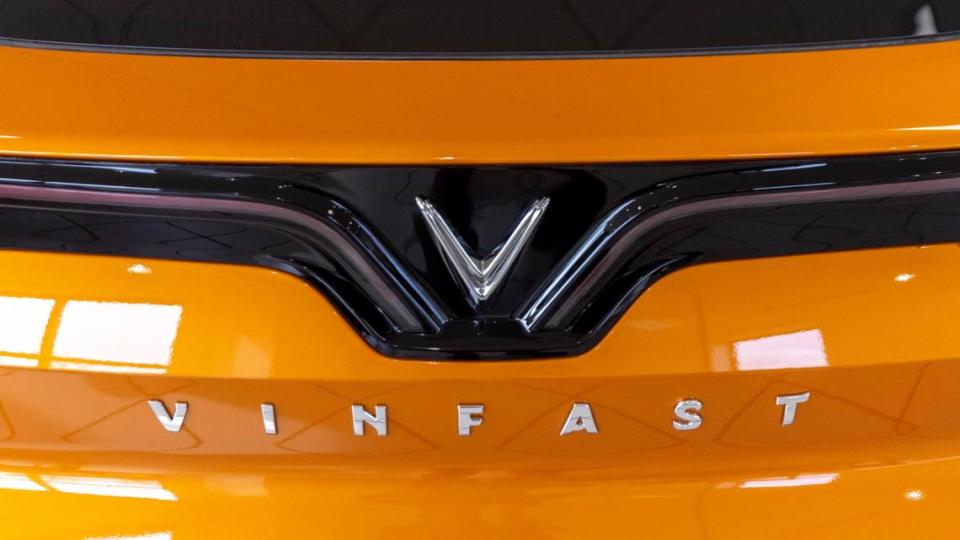VinFast shareholders file federal lawsuit against NC-bound carmaker. Here’s the claim
For a moment last summer, VinFast was among the world’s most valuable car companies.
A new Vietnamese electric vehicle maker with major ambitions in North Carolina, VinFast went public on Aug. 15 and immediately turned heads when it finished its market debut worth more than Ford or General Motors. Then its stock price kept rising: On Aug. 28, a share of VinFast peaked at $93, making it the third-highest valued automaker after Tesla and Toyota.
On Wednesday, a VinFast share could be bought for an all-time low of $2.62.
This price plunge hasn’t shocked those who doubted the stock of an unproven, loss-making manufacturer. VinFast reached the market via a special purpose acquisition company, or SPAC, a shell entity that serves as a channel for a private company to gain a public listing. SPAC listings frequently underperform their standard initial listings of $10 a share says Michael Ohlrogge, a New York University law professor who studies corporate governance and financial regulation.
“When prices come back to reality, investors who bought in at the inflated valuations given in SPAC merger agreements tend to do quite poorly,” he said. “Unless they are astute enough to dump their shares quickly after the merger.”
VinFast initially made only a tiny percentage of its shares trade-able, meaning the eye-popping valuation of this low-float stock came with a caveat.
Yet some investors now claim they lost money on VinFast stock due to securities fraud.
On April 12, two law firms filed a federal securities class action lawsuit against the carmaker on behalf of shareholders who allege misleading statements by VinFast caused them financial harm. These statements, the lawsuit contends, included overestimating the number of vehicles the company would deliver last year and the amount of funding it had to expand its operations.
In an email Wednesday to The News & Observer, a VinFast spokesperson called the allegation “baseless.”
“VinFast has adhered to the highest ethical standards and has consistently complied with all laws and regulations in the markets where it operates,” they said. “We will not comment further on this matter.”
In March 2022, the Vietnam-based VinFast announced it would build its first foreign automobile plant in North Carolina’s Chatham County, on a megasite southwest of downtown Raleigh. The company says the planned multibillion-dollar facility could eventually employ 7,500 people. However, building construction at the site has been paused for months as county officials wait for VinFast to send revised design plans.
‘It’s winner take all’
Class action securities lawsuits are not uncommon. According to the Stanford Law School Securities Class Action Clearinghouse, around 200 cases are brought annually. So far in 2024, there have been 60. Cases this year have been filed against Lyft, Dick’s Sporting Goods, Nextdoor and Boeing.
And companies are more likely to become defendants after experiencing stark share price declines, said Adam Pritchard, a corporate and securities law professor at the University of Michigan.
“A stock price drop is what puts the whole litigation machine into motion,” he said.
Lawyers file class action lawsuits through a process outlined by the Private Securities Litigation Reform Act of 1995. Each firm jockeys to represent the individual who has the largest alleged losses in the case. This person becomes the lead plaintiff and represents the class. Importantly for law firms, the lead plaintiff gets to pick their attorneys who hope to collect fees at the conclusion of the case.
Only the attorneys for the lead plaintiff get to make money on the case. “It’s winner take all,” Pritchard said.
This month’s VinFast lawsuit was jointly brought by the New York City firms Pomerantz LLP and Bronstein, Gewirtz & Grossman LLC. Under federal law, VinFast shareholders have 90 days to make their claim as a lead plaintiff — and firms seek to represent them. Several have already posted notices encouraging VinFast shareholders who owned stock during the period of the alleged violations to come forward.
To win a federal securities lawsuit, shareholders must trace their financial losses to material misstatements by companies. In the case against VinFast, the plaintiffs asked for a jury trial.
But Pritchard said these cases rarely go to trial. “Half the cases get dismissed,” he said. “And the other half settle.”
When settlements are approved, lawyers for the lead plaintiff take a percentage and the rest is proportioned among shareholders who can prove they lost money during the class period.




